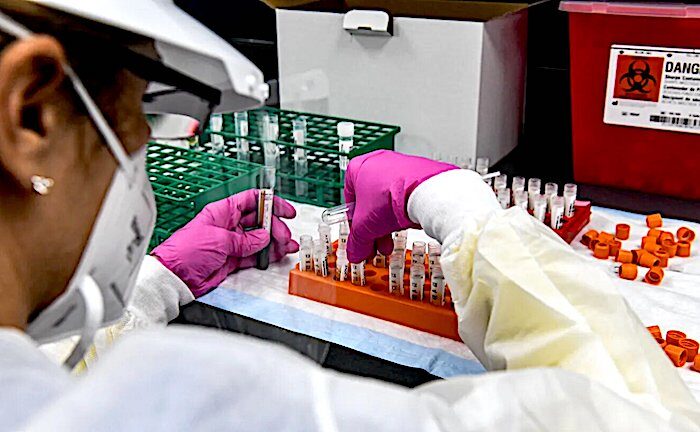
The company put a hold on its COVID-19 clinical trials worldwide while it investigated an adverse reaction in a trial participant in the United Kingdom.
It's not clear how long the stoppage will last. Sometimes reactions happen during a trial that are purely coincidental, but if they are serious enough, research is put on hold until they can be fully investigated.
AstraZeneca said in a statement late Tuesday that the company is testing a vaccine originally developed at Oxford University.
"We are working to expedite the review of the single event to minimize any potential impact on the trial timeline. This is a routine action which has to happen whenever there is a potentially unexplained illness in one of the trials, while it is investigated, ensuring we maintain the integrity of the trials."
The interruption represents the first major hiccup in what has been a remarkably smooth path in the historically rapid vaccine effort spanning the globe. That said, large-scale, make-or-break Phase 3 clinical trials are where real problems are most likely to occur.
In earlier, smaller trials, none of the various candidate vaccines reported very serious reactions. But in larger trials like AstraZeneca's, rarer reactions can pop up, which is why they are done before a vaccine is approved.
Such large trials split participants between getting an active vaccine or a placebo. It's not known which the ill person received.
In the United States, in addition to AstraZeneca's trial, two large-scale COVID-19 vaccine trials are underway, one by Pfizer and BioNTech, a German company, and another by Moderna, a biotech firm.
The medical and biotech news site STAT, which broke the news of the stopped trial, reported that the person's exact reaction was not known, although the patient is expected to recover.
Now the company must try to figure out the cause of the reaction, said Dr. William Schaffner, a professor in the division of preventive medicine and infectious disease at Vanderbilt University in Nashville, Tennessee.
"It's very possible that according to their protocol, as soon as the event occurs the company can put a hold on the trial and then refer the investigation to the Data Safety Monitoring Board, the external group of experts who then conduct an investigation."Schaffner offered a hypothetical example of how such a halt might happen. If, for example, one of the vaccine trial participants had a heart attack three days after getting the vaccine and ended up in the hospital:
"this would immediately qualify as an adverse event. We don't know if it's linked to the vaccine or not, but it would likely be the kind of trigger that could cause a pause while the Data Safety Monitoring Board investigated."AstraZeneca's statement in full reads:
"As part of the ongoing randomized, controlled global trials of the Oxford coronavirus vaccine, our standard review process was triggered and we voluntarily paused vaccination to allow review of safety data by an independent committee. This is a routine action which has to happen whenever there is a potentially unexplained illness in one of the trials, while it is investigated, ensuring we maintain the integrity of the trials. In large trials illnesses will happen by chance but must be independently reviewed to check this carefully. We are working to expedite the review of the single event to minimize any potential impact on the trial timeline. We are committed to the safety of our participants and the highest standards of conduct in our trials."



Why does it mutate like it does? Can a single vaccine hope to handle the mutations?